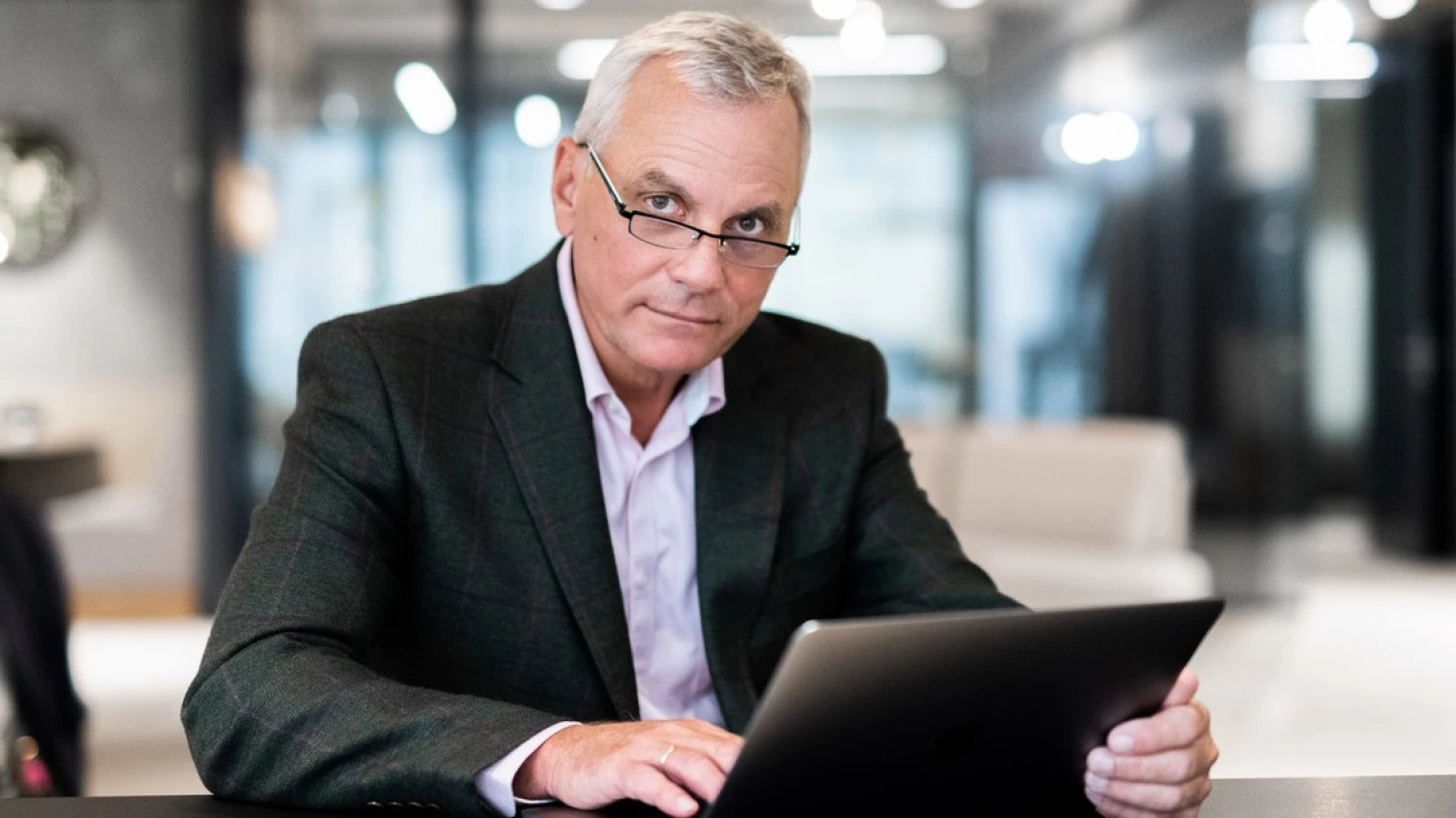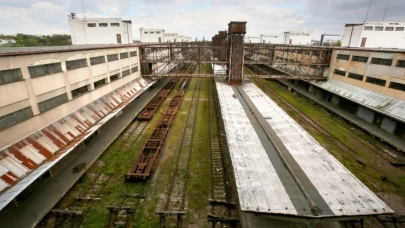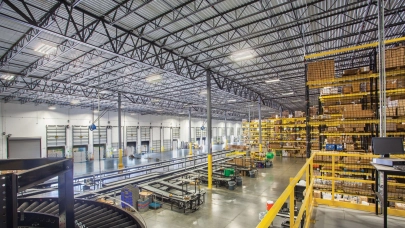
Wood is a building material that experts believe has a great future for many reasons. Firstly, it plays a significant role as a renewable material it is also a key in mixed-use buildings and contributes significantly to ESG or carbon neutrality targets. Thus, the demand for wooden buildings and prefabricated wooden products is not decreasing, quite the opposite, says Martin Skalický, Chairman of the Advisory Board at Progresus Invest Holding in an interview with Property Forum.
You studied civil engineering, worked in banking, and founded the Reico Investment Fund. How are you capitalizing on all this experience now?
It has all led me to work as an independent consultant for four years now, and I am capitalizing on it all. My lifelong drive gives me the opportunity to combine experiences that are starting to come together just perfectly all at once. In 1993, for example, I started working for Healy & Baker (now Cushman & Wakefield) as the first Czech employee of that company. In that stage, we started developing the real estate business here quite soon after the Velvet Revolution when we didn't know what real estate business meant. We were learning everything on the go at that time. I had several years at Healy & Baker, including a merger that turned a small British partnership company into a multinational firm, Cushman & Wakefield, which today has dozens of employees in several professional teams and covers all sectors of the real estate business. I worked on property valuations there using the RICS (Royal Institution of Chartered Surveyors) methodology during this period.
Following that was my work with ING Real Estate Asset Management, which took me to Poland, where I managed the asset management office of large shopping centres in Poland. In addition to my real estate experience and experience in valuing or appraising, I also gained experience in asset management and portfolio management from a financial management perspective. Thus, there was always a chance that came along that made use of my experience and added even more new knowledge.
This was also the case when starting Reico (REICO investment company of Česká spořitelna, a.s.) when it was again an application of experience to something that did not exist in our country yet. It was the very first open-end mutual fund to be established in the Czech Republic. During the establishment process, it was still waiting for some legislation to be passed so that the fund could operate. Ironically, we were setting up a real estate fund at a time when Lehman Brothers were about to fall, and the global real estate crisis was coming. And because of that, I went through that crisis experience. But of course, we had the backing of Erste ("mother" of Česká Spořitelna). There was a crisis then and the fund managed to get out of it within three years.
You're a young investment group, less than two years old. You own the leader in the production of wooden houses in Rýmařov, which has been in existence for 50 years... How did this merger come about?
There are two owners, Lukáš Zrůst and Lukáš Foral. Well, Lukáš Zrůst bought a wooden building from RD Rýmařov about seven years ago. He was so excited about the technology that he said that if it would ever be for sale, he would buy the factory. After some time, it happened. Lukáš Zrůst bought the production. The whole acquisition was finalised at the end of 2020 when it was a company with a production capacity of 430 houses a year and our ambition is to produce many times more. So, shortly after that, both Lukášs established our investment company Progresus and formed a group where they placed their previous businesses. As we had a factory where clients are the customers (B2C), they came up with the idea to expand this line to a B2B model - the production in Rýmařov would be a business partner for large-scale customers. Shortly after that, we decided to enter the development world too.
So, do you think wooden buildings still have a future? Are you not worried about the wood shortage?
They have a future! First, with proper forest management, according to experts, there will never be a shortage of wood here. And secondly, a wooden building is not just a small cabin by the Sázava River, and it does not mean that it is built only of wood. Rather, it should be called a combined building. Wood is certainly not always the predominant percentage there, it's a significant structural material, but then you also have insulation, external cladding, and internal cladding in that building. So, we look at timber buildings as a combination of materials. And I always say let's not fight with other materials, but let's always take the best of all those materials. Concrete is great from a structural-static point of view, and in combined multi-storey buildings its story can play out, for example, at the elevator shaft or the stair core. Then wood can play the rest, both in the static position and in the cladding. And there's always a drive to find the most economical, safe, and efficient way to make it work. In Scandinavia, for example, they build multi-storey buildings that are made entirely of wood. We are not that far away here yet. The way forward for us here in Europe should be prefabrication.
RD Rýmařov operates in at least 15 countries, and you have repeatedly said that you want to expand further and be the market leader in Europe. How are you going to achieve that? And where are you now looking next?
There is a chance of achieving this because the demand for wooden buildings in the housing sector simply is and will always be there. Because it is driven by people's recognition of the need for sustainable materials, to some extent it is also the fashion today and there are also ESG rules that will enforce it. There is also the obligation of carbon neutrality. And you can't meet all this without renewable materials. So, I am not worried about a lack of demand. But it's clear that one factory in Rýmařov can't do it. While there is capacity there to increase production, the logical answer is that we need to look for other sources of building materials, i.e., suppliers and processors. Logically, the expansion of the company is also about further business cooperation and capacity expansion. After the Czech Republic, Austria, the Scandinavian countries, and the UK are mainly interesting for us.
Are you also interested in development? And if so, will it be all about wooden buildings again?
Absolutely, we have already discussed this. As we expanded into B2B production of components for developers, the idea of our own development came soon after. Shortly after that, we signed contracts for about one million square meters of land in Prague and its surroundings. We are currently working on two plots of land, in Prague 5 and in Ďáblice. And the construction of family and apartment houses is being prepared there, with the goal of using the experience from Rýmařov and with the goal of building sustainable combined houses, i.e., houses where wood is the primary construction material. But there will also be a range of other materials. Progresus has already announced its entry into industrial development this autumn too. In cooperation with experienced developer Garbe, it is developing a large warehouse in Klášterec nad Ohří, where Garbe has landed.
On your website, your company also mentioned that you prefer to invest in projects with a higher purpose. So, what types of companies are you interested in?
The main reason for supporting such projects is the poor housing situation in the Czech Republic. We want to build houses with sustainable housing and modern technologies. You might pay more at the beginning, but it will definitely pay off over time, and maybe that's where we see the sense. So, we also work with a company that develops apps and sensors that collect and evaluate data, and you can be alerted by the app, for example, that you are wasting somewhere in the house and so on. Another example is Mykilio, which produces building materials from mycelium, i.e., mushrooms. We are interested in making solar films or solar roof tiles too. I am not saying that we are already investing everywhere, but that we want to go in that direction.



